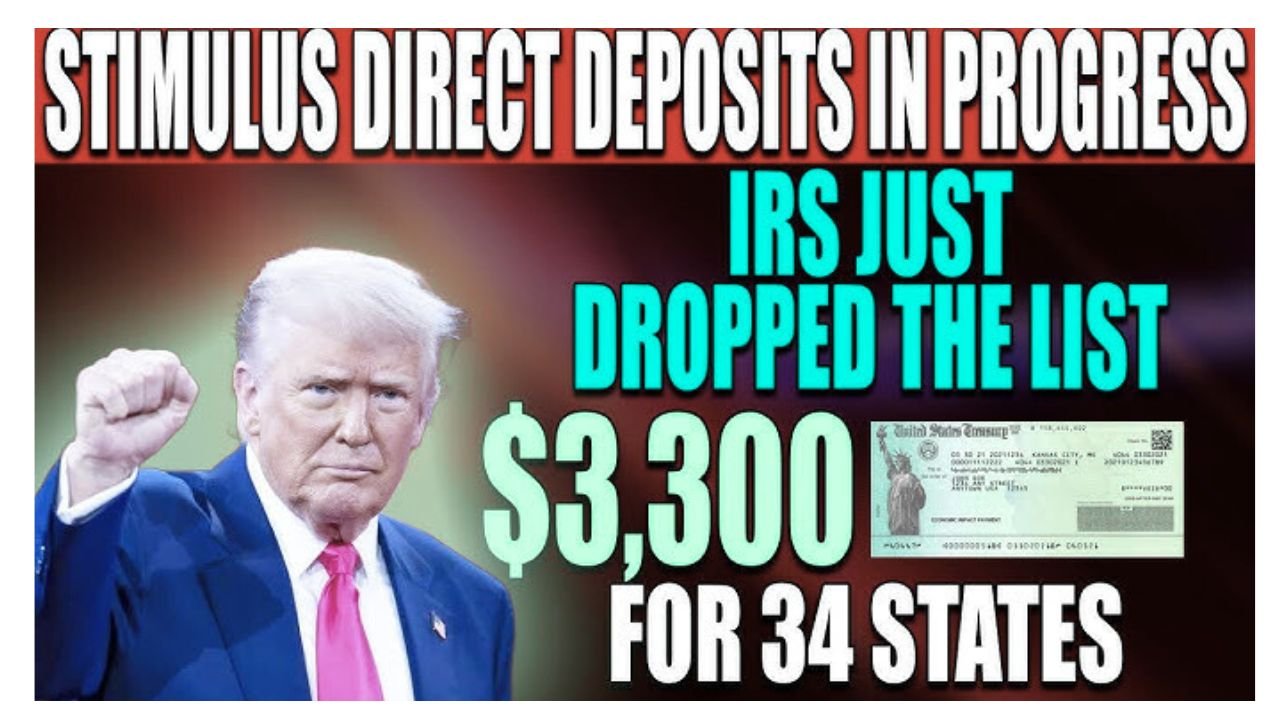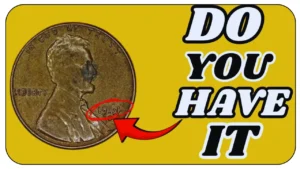A wave of surprise direct deposits from the IRS has taken thousands of Americans by complete shock this week — and for many, it couldn’t have come at a better time. Thousands of Americans Just Got Surprise
From coast to coast, U.S. taxpayers are waking up to see unexpected IRS payments hitting their bank accounts — amounts ranging from a few hundred to several thousand dollars. The reason? A mix of corrected tax credits, back payments, and unclaimed stimulus funds are being disbursed as part of a mass IRS adjustment initiative. Thousands of Americans Just Got Surprise
So, if you recently noticed an unexplained deposit labeled “IRS TREAS 310 TAX REF” or “TAX RELIEF CREDIT”, here’s everything you need to know about where it came from, whether you qualify, and what you should do next.
What’s Behind These Surprise IRS Payments?
The IRS announced in early June 2025 that it had completed a massive internal audit of 2020–2024 tax filings, specifically targeting missed or miscalculated tax credits, stimulus payments, and retroactive pandemic-era adjustments. Thousands of Americans Just Got Surprise
This nationwide review was triggered by:
-
Reports of millions in unclaimed Recovery Rebate Credits
-
Inaccurate Earned Income Tax Credit (EITC) applications due to pandemic-era income fluctuations
-
Ongoing litigation and adjustments from American Rescue Plan and CARES Act implementations
-
IRS system updates that automatically recalculate benefits for qualifying individuals and families
“Many Americans left money on the table during the pandemic and post-pandemic tax cycles,” said IRS Commissioner Daniel Werfel. “These deposits are part of our effort to make it right.”
Who Is Receiving These IRS Deposits?
There’s no single category of recipient — but several groups have been identified as likely to receive surprise deposits in June and July 2025. Thousands of Americans Just Got Surprise
Top Eligible Groups:
| Group | Why They’re Receiving Funds |
|---|---|
| Low-to-moderate income filers (2019–2022) | EITC adjustments, underpayments |
| Parents with children under 17 | Missed or miscalculated Child Tax Credits (CTC) |
| Non-filers from stimulus years | Back payments or recovery rebates owed |
| Recently corrected tax returns | Updated IRS records triggering auto-refunds |
| Social Security/SSI recipients | Underpaid stimulus distributions |
| Unemployed during pandemic years | Missed CARES Act benefits or tax exclusions |
Common Deposit Descriptions
Many recipients are confused when they see the sudden deposits. Here’s how these transactions may appear on your bank statement:
IRS Deposit Labels to Look For:
| Description | What It Means |
|---|---|
| IRS TREAS 310 TAX REF | Standard tax refund or corrected overpayment |
| IRS TREAS 310 TAX RELIEF CREDIT | Rebate or recovery credit adjustment |
| IRS 310 CHILD CTC | Child Tax Credit correction from past filings |
| IRS 310 EITC | Earned Income Tax Credit recalculation payment |
| IRS 310 STIMULUS BACKPAY | Missed pandemic-era stimulus disbursement |
How Much Are the Surprise Payments Worth?
Amounts vary based on the type of correction and your previous tax filings. While some are getting modest credits of $300–$600, others are receiving larger lump sums.
Example Payout Ranges by Category:
| Payment Type | Estimated Average Payout |
|---|---|
| Recovery Rebate Credit | $1,200 – $3,200 |
| Child Tax Credit (CTC) | $500 – $3,600 per child |
| Earned Income Credit | $800 – $3,000+ |
| Stimulus Backpay | $1,400 – $2,800 |
| Tax Overpayment Refund | $150 – $1,000 |
Note: These payments are not loans, and most are non-taxable. You are not expected to repay them, unless you received funds in error.
Why Now?
The IRS is under pressure from both Congress and taxpayer advocacy groups to fix what they’ve called “the long tail of pandemic-era filing issues.” Millions of taxpayers either didn’t receive full stimulus checks or filed incorrect returns due to unclear rules, job loss, or missing paperwork.
In 2024, the Government Accountability Office (GAO) flagged the IRS for having over $4 billion in unclaimed credits, urging the agency to take corrective action before the statute of limitations runs out on certain payments.
So, the June 2025 effort is partly a last-chance reconciliation push, ensuring Americans get what they’re owed before time runs out.
Do You Need to Do Anything to Claim This Money?
In most cases: No. The IRS is proactively depositing funds based on prior filings and updated information. However, you should log in to your IRS online account to:
-
Confirm the source of any unexpected deposit
-
Review your tax transcripts
-
Check for messages or notices explaining the adjustment
If you’re not sure whether you’re eligible but haven’t received anything, you may still be able to claim it — especially if you missed filing a return in any of the eligible years.
How to Check Your Eligibility
Use the IRS Tools
| Tool | Purpose | Link |
|---|---|---|
| IRS Online Account | View payments, transcripts | irs.gov/account |
| Get My Payment (archived) | Past stimulus status | irs.gov/coronavirus/get-my-payment |
| Recovery Rebate Credit Tool | Calculate if you missed a check | irs.gov (search “RRC tool”) |
| Non-Filer Tool (if reopened) | Claim payments without tax return | Available seasonally at irs.gov |
What If You Didn’t Get a Deposit Yet?
If you’re eligible but haven’t received a payment:
-
Wait 10–14 days, especially for paper check mailings
-
Ensure your bank info is current on file with the IRS
-
File a 2024 or back-year tax return if you haven’t already
-
Use IRS Form 3911 to trace a missing payment
You can also speak to the Taxpayer Advocate Service (TAS) for help navigating a missing refund.
Impact on Tax Returns and Benefits
The IRS has confirmed that these retroactive payments:
-
Will not count as taxable income
-
Will not reduce federal benefits such as SNAP, SSI, or Medicaid
-
May be reflected in 2025 tax transcripts but won’t impact your 2025 tax refund
This is especially important for seniors and low-income families who worry that a large deposit might count against their eligibility for assistance programs. It won’t.
Real Stories: What Americans Are Saying
Across social media platforms and Reddit threads, the surprise IRS payments have ignited excitement and confusion.
“Just checked my bank app and saw $3,200 from IRS TREAS 310,” wrote one user. “I thought it was fraud until I checked my tax transcript!”
“I thought stimulus was over. But they just sent me the CTC I never got in 2021,” said another. “I had no idea I was even owed anything.”
FAQs – Thousands of Americans Just Got Surprise
Q1: Is this a new stimulus check?
A: No. These deposits are adjustments or corrections to previously missed or miscalculated credits, not part of a new stimulus round.
Q2: Is the deposit taxable income?
A: In most cases, no. The IRS has clarified these payments are non-taxable and will not reduce future tax refunds.
Q3: What if I never filed taxes during the pandemic?
A: You may still qualify. File retroactively for 2020–2022 to claim recovery rebates or tax credits you missed.
Q4: How do I verify the deposit is real?
A: Log into your IRS account or check with your bank. The IRS will never call or email asking for bank details.
Q5: What if I got a check but wasn’t eligible?
A: The IRS may send a notice and repayment instructions if you were overpaid. Always read official mail carefully.





